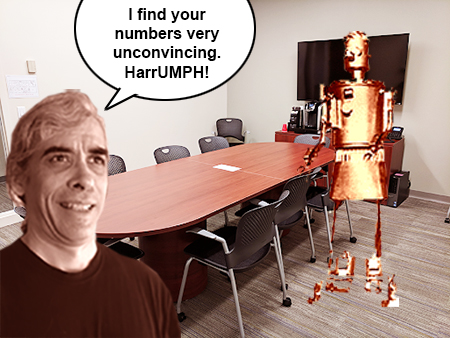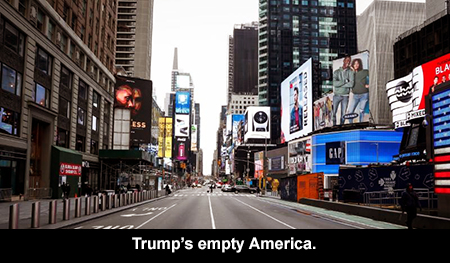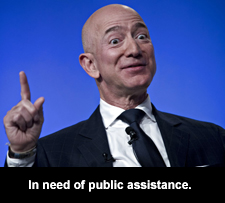What keeps a worker going to the job, day after day, even if s/he hates it like fire? The need for money, mostly. During the pandemic, however, that need was outweighed by something more basic – namely, the desire to stay alive.
When going to work began to entail risking your life for a broad swath of workers, those who had a choice in the matter chose to remain at home. The government made some effort to facilitate this, at least in some segments of the economy. There were those deemed essential workers who were compelled to risk their lives. This included many undocumented immigrants who picked our food and cared for our elderly while we hid from COVID.
Now that Americans are being strongly encouraged to return to their desks, their machines, their stations, etc., many are reluctant to do so. No doubt some folks have decided that this was an opportune time to drop out of the workforce entirely. Others are not convinced it’s safe. But I suspect many are holding back from returning to their crappy jobs because, frankly, they’ve had it with that shit, and who can blame them?
King Tut-Tut
Enter Donny Deutsch, some second-generation ad man who shows up on MSNBC every five minutes to share some rhetorical pearls of dubious provenance. Deutsch squeezed out this gem on Twitter the other day, then expanded on it when he appeared on Morning Joe:
Has the American work ethic softened? Maybe a little too much coddling of employees going on… just saying
So apparently this trust fund baby feels like capital isn’t disciplining labor sufficiently in the wake of the COVID shutdown. He feels like employers are being too flexible and are letting their workers work from home, etc. That’s undermining the “work ethic”. (I know he doesn’t own his dad’s business anymore, but if he did, I could tell you exactly why HIS employees wouldn’t be returning to the office. )
Green Solutions
It likely wouldn’t occur to someone like Deutsch that there is an obvious capitalist solution to the problem he’s describing. It’s called pay people more. It’s called treat them better.
Most of the jobs he’s talking about are ones that can easily be done remotely. If this pandemic has taught us anything, it’s that all this driving back and forth to office complexes is a tremendous waste of energy and resources. Even with many people choosing to stay out for a variety of reasons, I imagine a large percentage of those who’ve returned to the office work for an employer who is doing what Deutsch so admires – demanding that they sit at their workstation and look busy.
Times like these, I truly think that capitalism only survives by virtue of worker complacency, hopelessness, and cynicism. When some outside factor, like COVID, shakes things up, for a hot moment they can see the stupidity of this owner-wage slave relationship and start demanding more. There’s your silver lining.
luv u.
jp






 This is the program Trump inherited from other Republicans like Tom Tancredo, Mitt Romney, and many more. Obama’s first term, in particular, was an extreme accommodation to it as well. That’s likely because the big lie about invading armies of dark people is an effective distraction for disaffected workers. The bipartisan neoliberal economic experiment that’s been underway for the last forty years is a total failure for working people in this country; Trump is working to deepen that failure, and the only way a politician can maintain some measure of popularity while conducting these deeply unpopular policies is by encouraging working-class white people to blame brown people for all their troubles.
This is the program Trump inherited from other Republicans like Tom Tancredo, Mitt Romney, and many more. Obama’s first term, in particular, was an extreme accommodation to it as well. That’s likely because the big lie about invading armies of dark people is an effective distraction for disaffected workers. The bipartisan neoliberal economic experiment that’s been underway for the last forty years is a total failure for working people in this country; Trump is working to deepen that failure, and the only way a politician can maintain some measure of popularity while conducting these deeply unpopular policies is by encouraging working-class white people to blame brown people for all their troubles. This Pharaoh-like magnitude of personal wealth reflects a failing economy – more specifically, an economy that fails to serve a large swath of the population. It is about more than personal wealth. Any dude with $137 billion dollars (and there’s only one, so yes, it’s a dude) possesses $136 billion more than he could ever hope to spend on himself. The accumulation of untold billions is all about power – the power to affect the lives of millions on a whim, whether for good or ill. When Bill Gates sank a billion dollars of his fortune into distorting our educational system (and helping to undermine public sector unions in the process), he didn’t do it because we asked for his intervention. He did it because he wanted to, and because he thought his wealth gave him license. He was right … but only because we as a people have not taken steps to constrain that license.
This Pharaoh-like magnitude of personal wealth reflects a failing economy – more specifically, an economy that fails to serve a large swath of the population. It is about more than personal wealth. Any dude with $137 billion dollars (and there’s only one, so yes, it’s a dude) possesses $136 billion more than he could ever hope to spend on himself. The accumulation of untold billions is all about power – the power to affect the lives of millions on a whim, whether for good or ill. When Bill Gates sank a billion dollars of his fortune into distorting our educational system (and helping to undermine public sector unions in the process), he didn’t do it because we asked for his intervention. He did it because he wanted to, and because he thought his wealth gave him license. He was right … but only because we as a people have not taken steps to constrain that license. Capitalism’s Failure. This is an issue that touches on everyone, young and old, working and unemployed or retired, poor and not-so-poor. The internal contradictions of American and, by extension, global capitalism came to a head in the crash of 2008, and we are still living in the aftermath of that disaster. Yes, the government can point to select data points that indicated a modest level of recovery, but the fact remains that an economic system that has consistently failed the vast majority of the population over the past 30 years has entered into an entirely new phase of failure. Most working Americans are toiling at the only job they can find, earning an inadequate rate of compensation. Our major cities are choked with legions of homeless people. This system is broken; it only serves the top one percent. We need to take a hard look at this, sooner rather than later.
Capitalism’s Failure. This is an issue that touches on everyone, young and old, working and unemployed or retired, poor and not-so-poor. The internal contradictions of American and, by extension, global capitalism came to a head in the crash of 2008, and we are still living in the aftermath of that disaster. Yes, the government can point to select data points that indicated a modest level of recovery, but the fact remains that an economic system that has consistently failed the vast majority of the population over the past 30 years has entered into an entirely new phase of failure. Most working Americans are toiling at the only job they can find, earning an inadequate rate of compensation. Our major cities are choked with legions of homeless people. This system is broken; it only serves the top one percent. We need to take a hard look at this, sooner rather than later. What irks me, though, is the legitimization of truly extremist right-wing notions of governance (or lack of same) through what I’m sure NPR and other networks consider “balance coverage”. A brief example: yesterday there was a
What irks me, though, is the legitimization of truly extremist right-wing notions of governance (or lack of same) through what I’m sure NPR and other networks consider “balance coverage”. A brief example: yesterday there was a  Gingrich, who led the nation to a constitutional crisis over a presidential blow job, is now appalled that his pseudo-romantic foibles are considered a matter of national concern. Welcome to the world you helped invent, big guy.
Gingrich, who led the nation to a constitutional crisis over a presidential blow job, is now appalled that his pseudo-romantic foibles are considered a matter of national concern. Welcome to the world you helped invent, big guy.